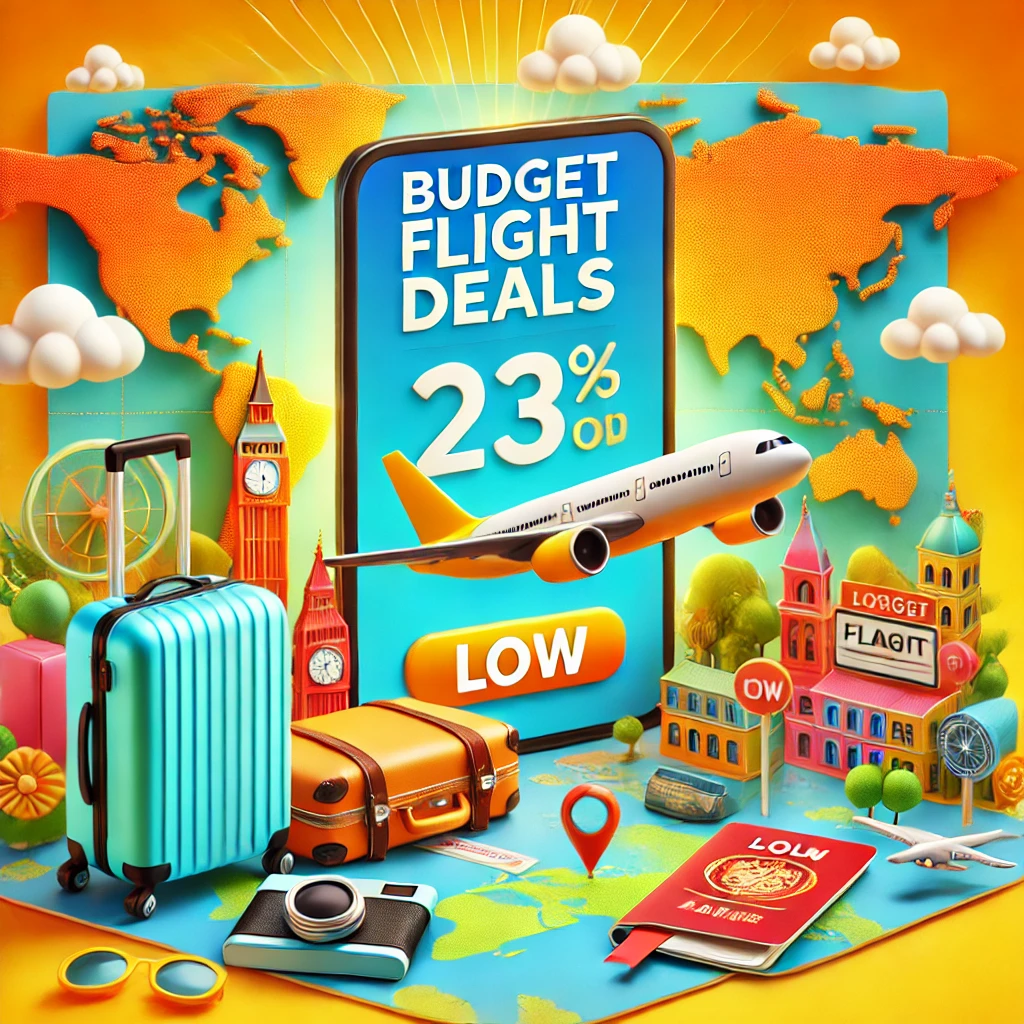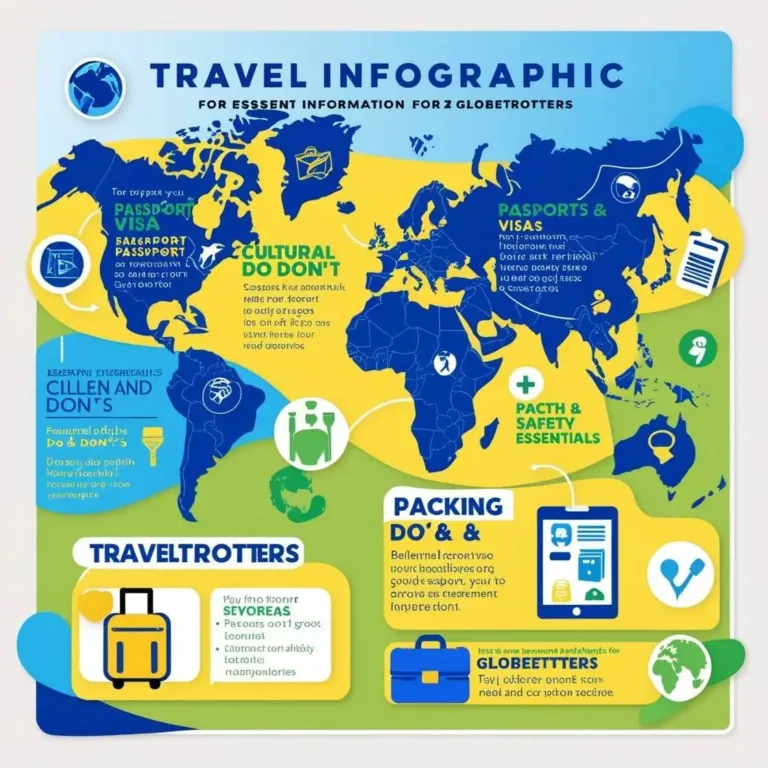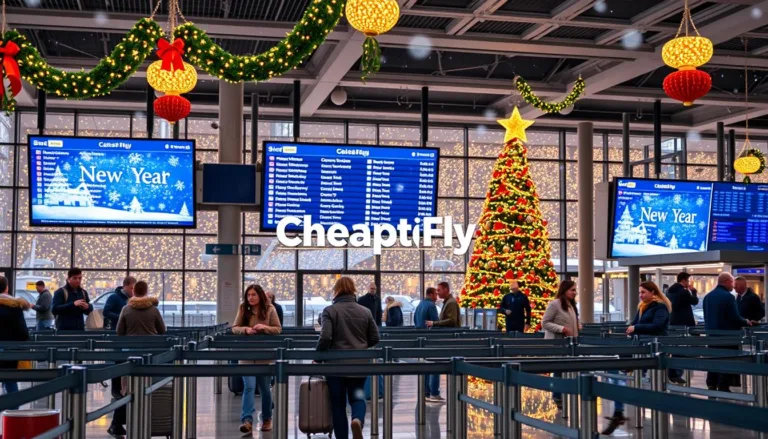Are you dreaming of your next adventure but worried about the cost? You’re not alone! Travel can be expensive, but with the right strategies, you can stretch your budget further than you ever imagined. In this comprehensive guide, we’ll explore practical advice on finding affordable flights, accommodations, and activities, helping you make the most of your travel budget. Get ready to embark on an unforgettable journey without breaking the bank!

- Planning Your Trip: The Foundation of Budget Travel
Before we dive into the specifics of saving money on flights, accommodations, and activities, let’s start with the basics. Proper planning is the cornerstone of budget travel. By taking the time to research and organize your trip in advance, you’ll be better equipped to find the best deals and avoid unnecessary expenses.https://www.cheaptofly.online/2024/11/06/best-places-to-visit-in-america/
Start by determining your travel goals and priorities. Are you looking for a relaxing beach getaway, an action-packed urban adventure, or an immersive cultural experience? Once you’ve identified your objectives, you can focus on finding destinations that offer the experiences you’re after without breaking the bank.
Next, consider traveling during the off-season or shoulder season. Not only will you find lower prices on flights and accommodations, but you’ll also encounter fewer crowds and potentially have a more authentic experience. Research your chosen destination to determine the best time to visit based on your budget and preferences.
- Finding Affordable Flights: Your Gateway to Adventure
For many travelers, flights represent a significant portion of their travel budget. Fortunately, there are several strategies you can employ to find more affordable airfare:
Be flexible with your travel dates: Use tools like Google Flights or Skyscanner to compare prices across different dates. Sometimes, shifting your trip by a day or two can result in significant savings.
Set up price alerts: Many travel websites and apps offer price alert features. Take advantage of these to stay informed about price drops for your desired routes.
Consider alternative airports: Look for flights to and from nearby airports. Sometimes, a short train or bus ride can lead to substantial savings on airfare.
Use airline miles and credit card rewards: If you’re not already collecting airline miles or credit card points, now’s the time to start. These rewards can translate into free or discounted flights, helping you stretch your travel budget even further.
Book at the right time: While there’s no guaranteed « best time » to book flights, studies suggest that booking 6-8 weeks in advance for domestic flights and 3-4 months in advance for international flights often yields the best prices.

- Budget-Friendly Accommodations: Rest Easy Without Breaking the Bank
Where you stay can have a significant impact on your travel budget. Here are some tips for finding affordable accommodations:
Embrace alternative lodging options: Look beyond traditional hotels and consider options like hostels, guesthouses, or vacation rentals. These alternatives often provide a more authentic experience at a fraction of the cost.
Use price comparison websites: Sites like Booking.com, Hotels.com, and Airbnb make it easy to compare prices across different types of accommodations. Don’t forget to check multiple sites, as prices can vary.
Consider location carefully: While it might be tempting to book the cheapest option available, factor in transportation costs. Sometimes, paying a bit more for a centrally located accommodation can save you money on transportation in the long run.
Look for free perks: When comparing accommodations, consider the amenities offered. Free breakfast, Wi-Fi, or kitchen facilities can help you save money during your stay.
Try house-sitting or home exchange: Websites like TrustedHousesitters and HomeExchange connect travelers with homeowners looking for someone to watch their house (and often their pets) while they’re away. This can be a great way to secure free accommodation, especially for longer stays.https://www.youtube.com/watch?v=yCPNZ8tqlGE&pp=ygVATW9uZXktU2F2aW5nIFRyYXZlbCBUaXBzOiBIb3cgdG8gR2V0IHRoZSBNb3N0IE91dCBvZiBZb3VyIEJ1ZGdldA%3D%3D
- Saving on Transportation: Getting Around on a your money
Once you’ve arrived at your destination, getting around can quickly eat into your budget if you’re not careful. Here are some tips for saving on transportation:
Use public transportation: Many cities have excellent public transportation systems that are far more affordable than taxis or rental cars. Research your destination’s options and consider purchasing multi-day passes for additional savings.
Walk or bike: Not only is walking or biking free (or nearly free), but it’s also a great way to explore your destination and stumble upon hidden gems. Many cities now offer bike-sharing programs, which can be an affordable and fun way to get around.
Ridesharing and carpooling: Apps like Uber and Lyft are often cheaper than traditional taxis. For longer distances, consider carpooling services like BlaBlaCar, which connect drivers with passengers heading in the same direction.
Rent a car strategically: If you need a car for part of your trip, try to rent it only for the days you’ll actually use it. Many cities are best explored on foot or by public transit, so you may not need a car for your entire stay.
- Eating on a Budget: Savoring Local Flavors Without the High Costs
Food is an essential part of any travel experience, but dining out for every meal can quickly drain your budget. Here are some strategies for eating well without overspending:
Embrace street food and local markets: Often, the most delicious and authentic food can be found at street stalls or local markets. Not only is this typically cheaper than restaurants, but it’s also a great way to experience local cuisine.
Cook some of your own meals: If your accommodation has a kitchen or kitchenette, take advantage of it. Visit local grocery stores or markets to pick up ingredients for simple meals. This can be especially helpful for breakfast and some dinners.
Look for lunch specials: Many restaurants offer lunch specials that are significantly cheaper than their dinner menus. Make lunch your main meal of the day to save money.
Carry snacks and a reusable water bottle: Packing snacks and a water bottle can help you avoid impulse purchases when hunger strikes between meals.
Ask locals for recommendations: Locals often know the best spots for delicious, affordable meals. Don’t be afraid to ask for suggestions!https://www.youtube.com/watch?v=yVuKNbWqbso&pp=ygVATW9uZXktU2F2aW5nIFRyYXZlbCBUaXBzOiBIb3cgdG8gR2V0IHRoZSBNb3N0IE91dCBvZiBZb3VyIEJ1ZGdldA%3D%3D
- Finding Free and Low-Cost Activities: Experiencing More for Less
Activities and attractions can be a significant expense, but with some creativity, you can find plenty of free or low-cost options:
Take advantage of free walking tours: Many cities offer free walking tours (tip-based) that provide an excellent introduction to the destination’s history and culture.
Visit museums on free days: Many museums have certain days or hours when admission is free or discounted. Research these in advance and plan your itinerary accordingly.
Explore nature: Parks, beaches, and hiking trails are often free and provide a great way to experience the natural beauty of your destination.
Attend local events and festivals: Check local event calendars for free concerts, exhibitions, or cultural festivals happening during your visit.
Use tourist cards wisely: Many cities offer tourist cards that provide free or discounted entry to multiple attractions. Calculate whether these cards will actually save you money based on the attractions you plan to visit.

- Leveraging Technology: Apps and Websites for Budget Travelers
In today’s digital age, there are numerous apps and websites designed to help travelers save money. Here are some must-have tools for budget-conscious explorers:
Currency conversion apps: XE Currency or Google Currency Converter can help you quickly understand prices in your home currency.
Discount apps: Groupon and LivingSocial often have deals on local activities and restaurants.
Last-minute booking apps: HotelTonight and Airbnb can help you find great deals on last-minute accommodations.
Wi-Fi finder apps: Apps like WiFi Map can help you find free Wi-Fi spots, saving you money on data charges.
Budget tracking apps: Tools like Trail Wallet or TravelSpend can help you keep track of your expenses and stick to your budget.
- Travel Insurance: Protecting Your Budget from Unexpected Costs
While it might seem counterintuitive to spend money on insurance when you’re trying to save, travel insurance can actually protect your budget from potentially catastrophic expenses. Look for a policy that covers:
Trip cancellation or interruption Medical emergencies Lost or delayed baggage Flight delays or cancellations
By having insurance, you can travel with peace of mind, knowing that you’re protected against unexpected costs that could otherwise derail your budget.
- Embracing Slow Travel: Quality Over Quantity
In our quest to see and do as much as possible, we often overlook the benefits of slow travel. By spending more time in fewer places, you can:
Save on transportation costs between destinations Negotiate better rates for longer-term accommodations Develop a deeper understanding of local culture Discover off-the-beaten-path experiences that are often more affordable
Consider adopting a slow travel mindset for your next trip. You might be surprised by how much richer (and more budget-friendly) your experience becomes.
- Maximizing Credit Card Rewards and Travel Hacking
For the truly budget-savvy traveler, credit card rewards and travel hacking can be powerful tools for saving money:
Choose a travel rewards credit card that aligns with your spending habits and travel goals. Look for sign-up bonuses that can give your points balance a significant boost. Learn about transfer partners and how to maximize the value of your points. Consider strategies like the « Chase Trifecta » or the « Amex Trifecta » to earn and redeem points more effectively.
Remember, while credit card rewards can be incredibly valuable, it’s crucial to use credit responsibly and always pay your balance in full to avoid interest charges.
Conclusion: Your Journey to Budget-Friendly Travel Starts Now
Traveling on a budget doesn’t mean sacrificing quality or experiences. By implementing the strategies we’ve discussed – from finding affordable flights and accommodations to embracing local cuisine and free activities – you can stretch your travel budget further than you ever thought possible.
Remember, the key to successful budget travel is planning, flexibility, and a willingness to step outside your comfort zone. Be open to new experiences, alternative accommodations, and local recommendations. Often, it’s these unexpected moments that become the highlights of your trip.
As you embark on your budget-friendly adventures, keep in mind that travel is not just about ticking off bucket list items or visiting popular attractions. It’s about immersing yourself in new cultures, creating meaningful connections, and gaining fresh perspectives. And the best part? These priceless experiences often come with the smallest price tags.
So, start planning your next adventure with these money-saving tips in mind. Your wallet will thank you, and you’ll likely find that traveling on a budget leads to more authentic and rewarding experiences. Happy travels, and may your journeys be filled with unforgettable moments that don’t break the bank!







